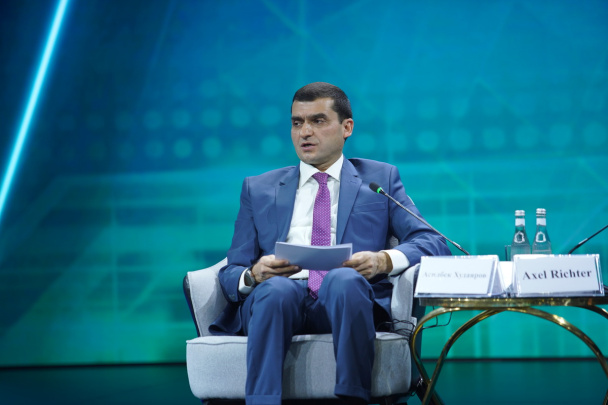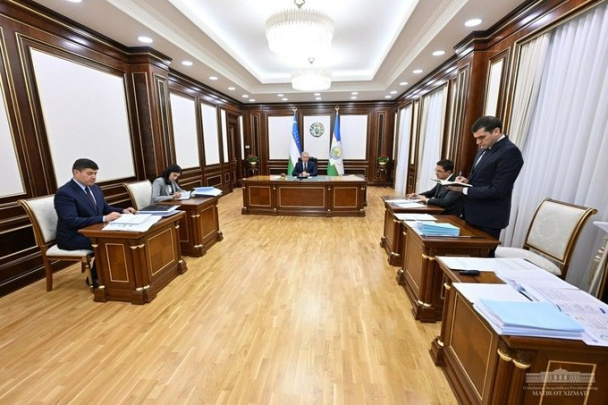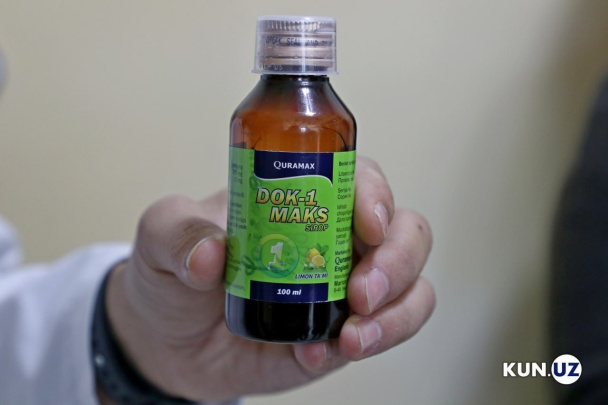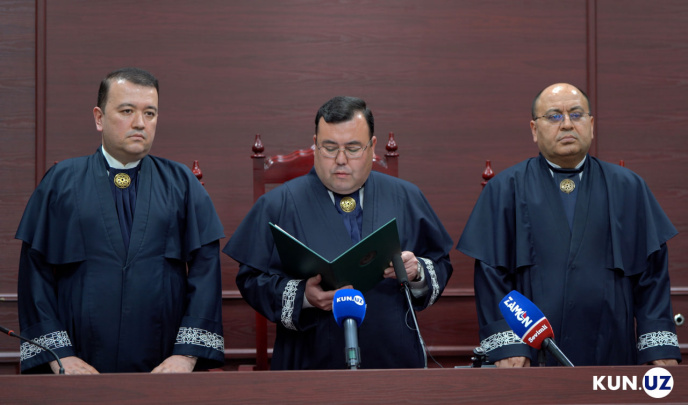Medical professor blamed Health Ministry for Doc-1 Max events
Zarifboy Ibodullayev, professor of the Tashkent Medical Academy, in an interview with Kun.uz, commented on the Doc-1 Max tragedy, accused the Ministry of Health of being indifferent to the WHO warning about the death of 69 children in Gambia.
- After the death of children caused by Doc-1 Max, the Ministry of Health issued an official response. According to it, the doctors who exposed these events were found guilty for not conducting an analysis of the children’s deaths. How do you feel about it? Is it correct to blame doctors in this process?
- First of all, on the contrary, these doctors should have been thanked for their dedication. A logical question arises here: why did the Health Ministry not pay attention to the WHO warning* 6 months ago, why did it ignore the international organization’s restriction on the use of this drug or similar toxic drugs? The Ministry of Health is related to medicine and pharmaceuticals issues in the republic, isn’t it? We even heard that these doctors were arrested. These doctors can file a lawsuit against the Ministry for not being warned and why these drugs entered Uzbekistan, why they were not completely removed as per the WHO recommendation. The Ministry itself is guilty here, and it must answer before the law.
Any drugs entering the republic had to undergo digital marking. A system for monitoring the movement of drugs has been set up all over the world, which includes information such as where the drugs were produced, which border they crossed, which hospital they were delivered to, and the conclusion of international expertise. It had to be integrated with this system.
Or, why was the WHO recommendation not followed? The Ministry should have done this. Why didn’t the officials at the “top” check it?
I would like to take this opportunity to request that the chief doctor Mamatkul Azizov be reinstated if he has been dismissed. If he is a 70-year-old specialist, he should be retained at least as a consultant. Arrested experts should be temporarily released and on open trial should be held. Doctors should not be afraid to blame the Ministry of Health. Respected ministerial officials and executives responsible for pharmaceutical quality control should also be brought to the Supreme Court.
Who can guarantee that such cases do not happen in other regions? The deceased sick children should be checked in all regions. Perhaps, it is because of this drug that the death toll may be even higher.
How many more children would have died if our professor doctor from Samarkand had not told us about the death case and if this information had not been released to the public? I think the new health minister will take personal control of this. I hope that the situation with these drugs and other similar drugs will be transparently investigated throughout the republic.
- Before the start of interview, you mentioned that there is a corrupt scheme in the system...
- There is a corruption scheme in the healthcare system, it consists of 3 floors. The people on the first floor are the ministerial officials responsible for the field. That is, the chief specialists conspire with pharmaceutical companies importing these drugs. There are chief specialists, rectors of medical institutes and some “deputy ministers”. Along with honest employees in the system, there are also those who are involved in this.
On the second floor related to drugs, there are heads of the regional health department, rectors of medical institutes located in the regions, and areal chief specialists.
Those who live on the third floor are doctors. That is, the floor that works for bonus from that drug. It’s really hard to eliminate them all. However, the drastic reduction system is the transition to health insurance. Neither the State Security Service nor the Prosecutor General’s Office can implement this.
Many are asking whether the public will suffer if they switch to insured medicine. It could happen in the first year. For the entire 12 months of 2023, the state must bear the expenses related to insured medicine. During this time, insured medicine should be explained to doctors, and the system should be taught. A special group is needed for this. All unnecessary “cities” and construction projects should be stopped and the money allocated to them should be directed immediately to the expenses related to medical insurance.
Kazakhstan switched to this system in 2018, they also struggled for 1 year. I have watched this process closely, and we can have it too.
In the insured medicine, diagnostic and treatment standards are placed on every doctor’s desk. According to that standard, if three drugs are to be given, the patient is prescribed these three. If something goes wrong, the doctor can defend himself by saying that I followed these standards. If we switch to insured medicine, doctors treat according to a specific standard, not according to their experience.
Evidence-based medicine should be taught in all medical institutions. What is evidence-based medicine? Medicines all over the world do not have the same effect. If I explain it more simply, 100% effective drugs are included in group “A”, less effective ones are in group “B”, 50% effective are in group “C”, and drugs with no proven effectiveness are included in group “D”. There are plenty of drugs belonging to group “D” in Uzbekistan. In the transition to insured medicine, the state must conduct an examination of these. Medicines that do not have a self-efficacy and do not meet international standards will be withdrawn from the market.
One can watch the full interview in the video above.
Related News

12:04 / 23.10.2024
Health Minister claims support for children disabled by 'Doc-1 Max' incident; affected parent disputes the statement

11:48 / 05.09.2024
State health insurance to be introduced in two regions from October 1

12:25 / 23.07.2024
Uzbekistan awaits clarity from Indian delegation on 'Doc-1 Max' case

18:03 / 03.07.2024



